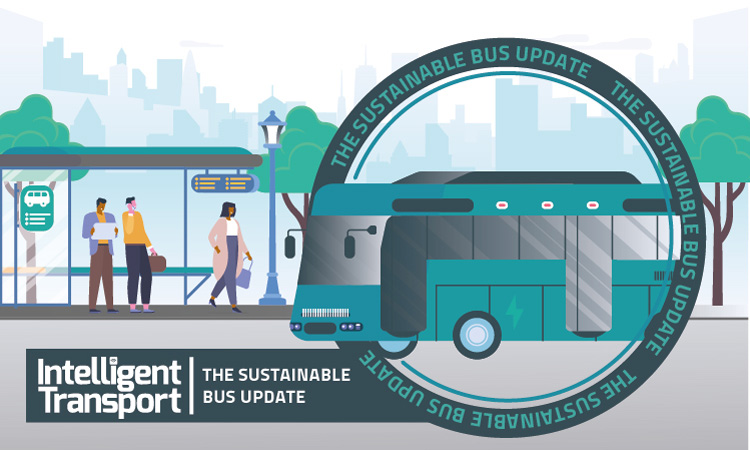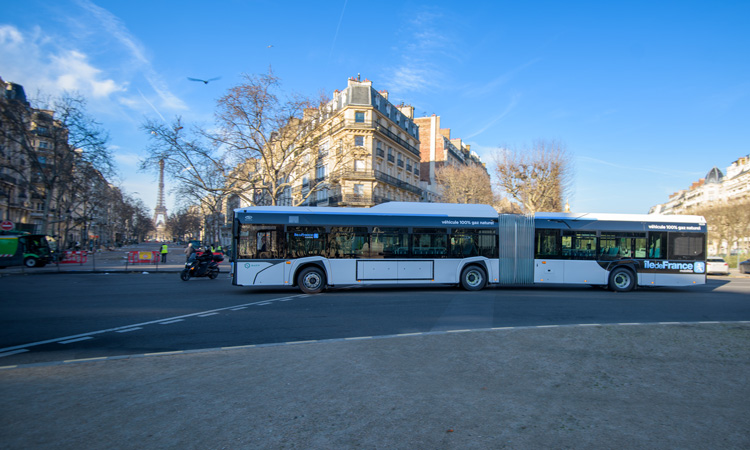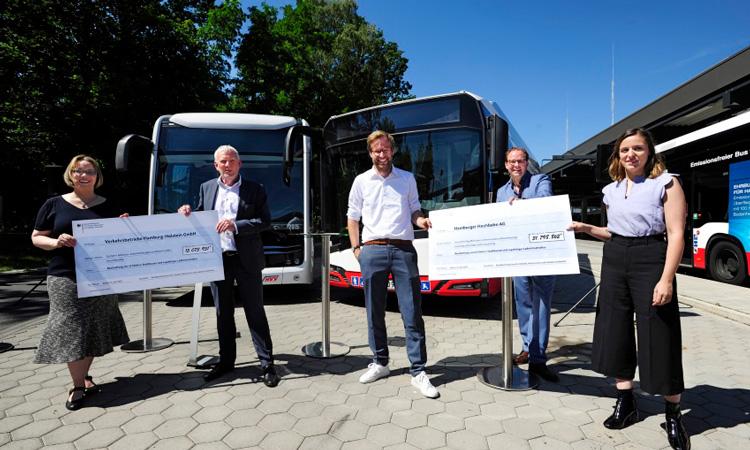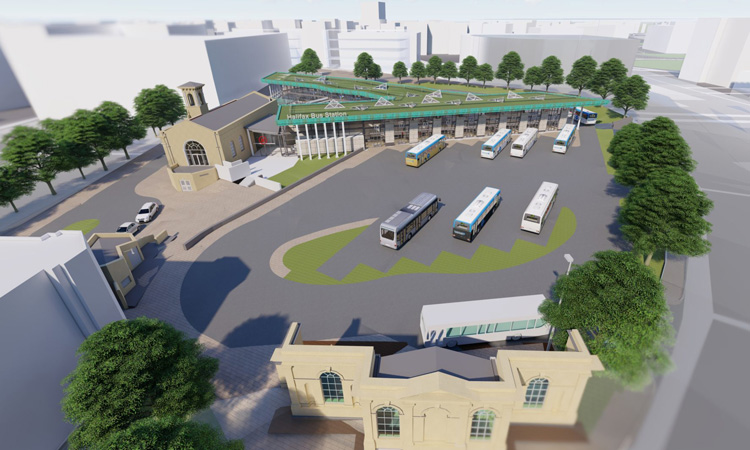The Sustainable Bus Update: volume seven
- Like
- Digg
- Del
- Tumblr
- VKontakte
- Buffer
- Love This
- Odnoklassniki
- Meneame
- Blogger
- Amazon
- Yahoo Mail
- Gmail
- AOL
- Newsvine
- HackerNews
- Evernote
- MySpace
- Mail.ru
- Viadeo
- Line
- Comments
- Yummly
- SMS
- Viber
- Telegram
- Subscribe
- Skype
- Facebook Messenger
- Kakao
- LiveJournal
- Yammer
- Edgar
- Fintel
- Mix
- Instapaper
- Copy Link
Posted: 6 August 2020 | Sam Mehmet (Intelligent Transport) | No comments yet
Within the next edition of The Sustainable Bus Update, we summarise the most recent and standout sustainable bus purchases and developments from across the globe.


Warsaw sings contract for 70 natural gas city buses
Warsaw public transport operator Miejskie Zakłady Autobusowe (MZA) has signed a contract for the delivery of 70 CNG natural gas city buses.
MZA Warszawa ordered 40 Solaris Urbino 12 CNG and 30 articulated Solaris Urbino 18 CNG buses.
The buses will be equipped with breath alcohol ignition interlocks which require the driver to undergo a breathalyser test before driving. If the test result is positive, the device prevents the engine from being started.
The buses will also be fitted with closed driver cabins with a separate entry to limit contact with passengers, thus minimising the risk of COVID-19 infection.
“The purchase of Solaris CNG buses is a continuation of our ecological policy, consisting in introducing large numbers of zero-emission and low-emission buses into the rolling stock,” said Jan Kuźmiński, President of the Management Board of MZA. “We already have 91 electric and 145 CNG buses. After completion of all planned deliveries by the end of 2022, it will be 160 electric buses and 305 CNG buses, respectively. This will account for almost 50 per cent of buses departing on the streets of Warsaw on a weekday.”


Ploiești to deploy 20 electric trolleybuses
The Romanian city of Ploiești is to deploy 20 Solaris trolleybuses. According to the contract worth PLN36 million, the vehicles will have been delivered within two years from the signing date.
The trolleybus network launched in Ploiești in 1997 is the newest of all networks in Romania. By placing the order, the city will replace about half of its fleet.
“I am extremely happy that further Solaris trolleybuses will drive along Romanian roads and that I can welcome the city of Ploiești to our family of almost 750 towns and cities where our vehicles are in use. Over the last three years we have delivered solely low- or zero-emission vehicles to the Romanian market. The order placed by the city of Ploiești represents a continuation of this resident- and environmentally friendly trend”, said Petros Spinaris, deputy CEO of Solaris.
The 12-metre Trollino 12 trolleybuses commissioned by the city will be propelled by a 160 kW electric motor.


€47 million for public transport conversion in Hamburg
Hamburger Hochbahn AG (HOCHBAHN) has launched a tender for the delivery of up to 50 fuel cell buses for the years 2021 to 2025. The call for tenders consists of four lots. HOCHBAHN will purchase pure fuel cell hybrid buses as well as buses in which the fuel cell serves as a range extender.
The basis of the tender is a detailed specification sheet that sets clear technical requirements for the vehicles. These include a minimum range of 300km for solo buses and 230km for articulated buses.
The tender comes after the Federal Ministry for the Environment, Nature Conservation and Nuclear Safety (BMU) announced that it would fund the conversion of local public transport to electric mobility in Hamburg with €47 million of investment.
Anjes Tjarks, Senator for Transport and the Mobility Turnaround, said: “Climate and environmentally friendly local transport is an important component on the way to improved air quality in the city and thus to a better quality of life for the people of Hamburg. In order to reduce pollution, we want to increasingly rely on alternative drives for buses. E-mobility plays a key role in this. With the funding, the Federal Environment Ministry is supporting our goal of switching to a completely emission-free bus fleet by the end of the decade. “
Henrik Falk, CEO of HOCHBAHN, added: “The procurement of emission-free buses is one of the most important strategic corporate goals. Even in a time marked by coronavirus, we remain fully on course to retire the last diesel bus by 2030 at the latest.”


The BMU is funding the conversion to electric mobility with a total of €47 million. Credit: HOCHBAHN
250 electric buses to be rolled out in Milan
ATM Milano‘s commitment to an increasingly sustainable urban transport system has moved forward with the award of two tenders that will contribute to renewing the fleet.
250 electric buses were award to SolarisBus and 80 trams to Stadler, for a total investment of €365 million. In the coming months, the first application contracts will be implemented which will bring 70 new electric vehicles, 40 buses and 30 latest generation trams to the streets of Milan, for an initial overall investment of over €103 million.
The goal is to make the fleet 100 per cent electric by 2030 as envisaged by the investments of the Company’s Full Electric plan.
To date, 70 per cent of the journeys of all public transport at ATM are electrically powered and the “total green” fleet in circulation is made up of 25 electric buses, 100 hybrid buses and three hydrogen buses, as well the underground trains, trams and trolley buses.
In recent months, thanks to ATM investments, 125 diesel buses have been retired, replaced with electric and hybrid alternatives.
Plans submitted for £15.8 million eco-friendly bus station in Halifax, UK
Plans for a £15.8 million bus station in Halifax have been submitted by Stephen George + Partners LLP (SGP) and infrastructure firm AECOM. The bus station aims to be a key regeneration project which will deliver a fully enclosed concourse with a living green roof.
The redeveloped station is said to be key component of West Yorkshire Combined Authority and Calderdale Council’s plans to transform public transport within Halifax town centre.
Alistair Branch, Studio Director at SGP, said: “Our design for the bus station redevelopment sensitively integrates a number of important listed heritage structures within a modern bus concourse facility, improving safety for pedestrians and enhancing accessibility to the town centre in a state-of-the-art station that meets the aspirations of the client, operators and key stakeholders.
“The surrounding buildings all have views towards the bus station from a high level, making the roofscape as important as the other elevations. Our design incorporates a fully green roof, with a wildflower meadow over the main concourse to encourage ecological diversity and a sedum green roof over the bus boarding areas to reduce load on the large canopy overhangs.
“Halifax Bus Station is a once in a generation project, a statement building, sustainable and future-proofed for new electric vehicles, able to help reduce congestion, enhance public spaces and promote economic activity across Halifax and the West Yorkshire region.”
The project has received funding through the Transforming Cities Fund and match funding from the West Yorkshire Plus Transport Fund. The planning decision is expected in Autumn 2020 and the project is planned to complete by March 2023.


Credit: SGP
To read the previous volumes of The Sustainable Bus Update, click here.
Related topics
Alternative Power, Fleet Management & Maintenance, Infrastructure & Urban Planning, Public Transport, Sustainable Urban Transport
Related modes
Bus & Coach
Related organisations
AECOM, ATM Milano, Calderdale Council, Federal Ministry for the Environment Nature Conservation and Nuclear Safety (BMU), Hamburger Hochbahn AG (HOCHBAHN), Miejskie Zakłady Autobusowe (MZA), Solaris, Stephen George + Partners LLP (SGP), West Yorkshire Combined Authority
Related people
Alistair Branch, Anjes Tjarks, Henrik Falk, Jan Kuźmiński, Petros Spinaris







